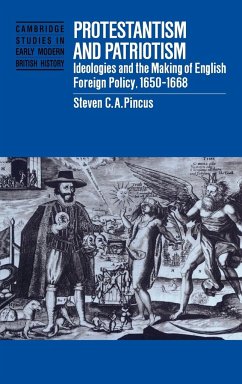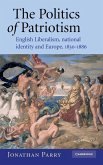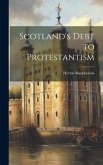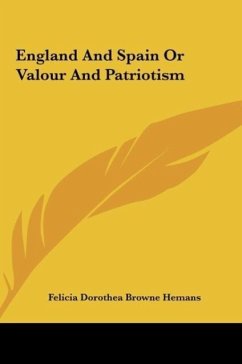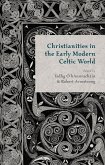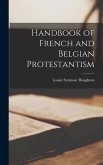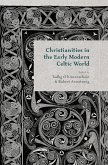Protestantism and Patriotism offers a fundamental reinterpretation of English political culture between 1650 and 1668. It is also both the most detailed study to date of the causes and consequences of the first two Anglo-Dutch Wars (1652-1654 and 1665-1667), and a configuration of the English political nation which engaged in those two conflicts. Professor Pincus argues that it is impossible to understand the making of English foreign policy in this period without a careful study of its ideological contexts, while at the same time suggesting that accounts of English domestic politics which ignore the ideological implications of England's place in European political culture are impoverished. Because of the broad context in which the Anglo-Dutch Wars are situated, the book will appeal not only to specialists in English foreign policy but to all those interested in seventeenth-century English and Dutch politics and culture.
Table of contents:
Acknowledgements; Abbreviations; 1. Introduction; Part 1. The Rod of the LORD; 2. Historiographical overview; 3. Attempt at unification; 4. The road to war; Coda: the popular apocalyptic context; Part II. To Unite against the Common Enemy; 5. Historiographical context; 6. The causes of the war stated; 7. Peace proposed; 8. Political upheavals and ideological divisions; 9. The rejection of apocalyptic foreign policy; 10. The Protectorate's new foreign policy; Part III. Popery, Trade and Universal Monarchy: 11. Historiographical overview; 12. The establishment of an Orangist foreign policy; 13. The Anglo-Dutch treaty of 1662; 14. The Northern Rebellion and the re-establishment of Anglican Royalist consensus; 15. The April 1664 trade resolution; 16. Popery, trade and universal monarchy; Part IV. The Medway, Breda and the Triple Alliance; 17. Historiographical overview; 18. The circulation of news and the course of the war; 19. The popular understanding of the war; 20. The government's war aims; 21. An Orangist revolution?; 22. Victory denied and wartime consensus shattered; 23. The rise of political opposition; 24. The road to Chatham: the decision not to send out a battlefleet; 25. The demise of Anglican Royalist foreign policy; 26. Conclusion; Bibliography; Index.
Protestantism and Patriotism is a detailed study of the first two Anglo-Dutch Wars (1652-1654 and 1665-1667) and the ideological contexts in which they were fought. It differs from other treatments of English foreign policy in this period by emphasising that diplomacy, trade and warfare cannot be studied in isolation from domestic culture.
A detailed study of the first two Anglo-Dutch Wars and the ideological contexts in which they were fought.
Hinweis: Dieser Artikel kann nur an eine deutsche Lieferadresse ausgeliefert werden.
Table of contents:
Acknowledgements; Abbreviations; 1. Introduction; Part 1. The Rod of the LORD; 2. Historiographical overview; 3. Attempt at unification; 4. The road to war; Coda: the popular apocalyptic context; Part II. To Unite against the Common Enemy; 5. Historiographical context; 6. The causes of the war stated; 7. Peace proposed; 8. Political upheavals and ideological divisions; 9. The rejection of apocalyptic foreign policy; 10. The Protectorate's new foreign policy; Part III. Popery, Trade and Universal Monarchy: 11. Historiographical overview; 12. The establishment of an Orangist foreign policy; 13. The Anglo-Dutch treaty of 1662; 14. The Northern Rebellion and the re-establishment of Anglican Royalist consensus; 15. The April 1664 trade resolution; 16. Popery, trade and universal monarchy; Part IV. The Medway, Breda and the Triple Alliance; 17. Historiographical overview; 18. The circulation of news and the course of the war; 19. The popular understanding of the war; 20. The government's war aims; 21. An Orangist revolution?; 22. Victory denied and wartime consensus shattered; 23. The rise of political opposition; 24. The road to Chatham: the decision not to send out a battlefleet; 25. The demise of Anglican Royalist foreign policy; 26. Conclusion; Bibliography; Index.
Protestantism and Patriotism is a detailed study of the first two Anglo-Dutch Wars (1652-1654 and 1665-1667) and the ideological contexts in which they were fought. It differs from other treatments of English foreign policy in this period by emphasising that diplomacy, trade and warfare cannot be studied in isolation from domestic culture.
A detailed study of the first two Anglo-Dutch Wars and the ideological contexts in which they were fought.
Hinweis: Dieser Artikel kann nur an eine deutsche Lieferadresse ausgeliefert werden.

